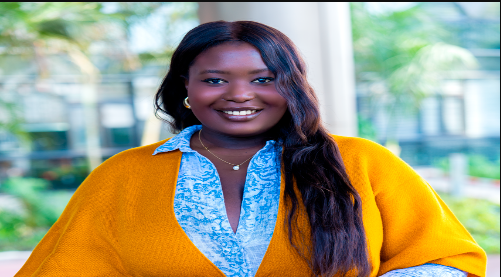

As the OTT Streaming Summit – Africa 2025 approaches, scheduled to place on the 18 – 19 February 2025 at the Capital 15 On Orange – Cape Town, South Africa, Broadcast Media Africa sat down with Ms Caroline Dia, Content Strategist of Orange Sénégal.
During the conversation, Ms Dia shared her insights on the future of streaming in Africa, the emerging trends shaping content consumption, and the collaborative efforts needed to drive sustainable growth.
Below is an abstract from the conversation:
BMA: What influenced your decision to agree to participate in the OTT Streaming Summit?
Caroline: I was motivated by three key factors: First, it provides a valuable platform to engage with industry leaders and discuss the realities of content distribution in Africa. Second, it offers an opportunity to bridge the gap between Francophone and Anglophone Africa, fostering stronger cross-regional collaborations. Lastly, it is a chance to showcase Senegal’s unique storytelling and cultural richness while gaining insights from global and regional players on effective monetisation and distribution strategies.
BMA: Please tell us how you see the content streaming space in Africa evolving regarding the effect on content distribution and monetisation, especially in the context of the African market conditions.
Caroline: The industry is accelerating toward:
- Mobile-first, pay-as-you-go models, with micro-billing enhancing accessibility.
- Live events, especially in sports and music, drive growth and revive traditional entertainment like theatre.
- Short-form, serialised content, adapting to evolving viewer habits and the popularity of social media reels.
- AVOD expansion, led by YouTube and the rising potential of telecom-backed super apps like Max It by Orange.
BMA: What particular challenge(s) or issues (s) do players in this industry face, and how do you see it being resolved and overcome?
Caroline: Piracy remains the biggest challenge, undermining the exclusivity SVOD platforms rely on. Combating it requires a mix of awareness campaigns, stricter legal enforcement, and advanced technological solutions. Data costs also remain a barrier, making it essential for platforms to offer competitive pricing and collaborate with telecom providers to enhance accessibility. Platforms like WIDO and TV d’Orange benefit from telco support, enabling adaptable streaming offers with data included. Lastly, content quality and relevance are key—Africa, particularly Senegal, boasts a rich storytelling tradition and skilled producers, providing a strong foundation for creating compelling, locally resonant content.
BMA: Tell us what you hope fellow participants will take away from this industry summit?
Caroline: I hope this summit reaffirms Africa’s vast streaming potential and the growing opportunities within the sector. Most importantly, it should highlight the power of collaboration—building stronger bridges between Francophone and Anglophone Africa through co-productions, format sales, and telecom-driven distribution strategies.
To join Caroline Dia and other industry leaders, visit the event website here.










